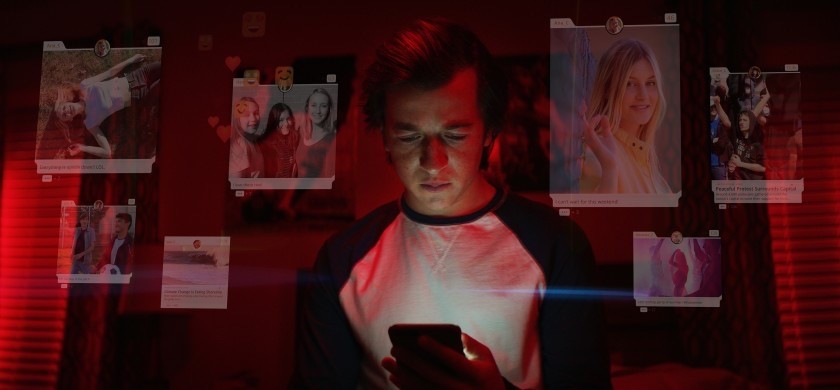‘The Social Dilemma:’ Factual criticism of social nets lands home, dramatic elements don’t
Although the mixture of documentary and drama involved is stilted, the Netflix original “The Social Dilemma” is a must-watch title for recognizing the dangerous impact social media has on the world at large.
Director Jeff Orlowski is no stranger to documentary filmmaking; his last two major projects, “Chasing Ice” and “Chasing Coral” were recognized for their abilities to highlight serious 21st-century issues. “The Social Dilemma” in its documentary half works in a very similar way. However, rather than have scientific experts discuss environmental issues, Orlowski’s new film uses a different types of expert: the lamenting ex-executive of Silicon Valley.
The most effective parts of “The Social Dilemma” were ironically the most predictable. The rise of social media has been based in for-profit screen addiction. The rise of social media correlates with a rise in teen insecurity, self harm and suicide. The rise of social media allows immoral algorithms to spread misinformation and radicalization faster than a plague spreads death. And, perhaps most obviously, so-called “Big Tech” had no intention or understanding that any of this would happen. Still, these truths have remained only in the back of my head until now; after all, which teenager wants to acknowledge that the app they’ve already sunk eight hours into this week is causing them this much damage?
The crux of the argument behind “The Social Dilemma” is two-fold. While a pessimistic outlook dominates the film, spread throughout is a hope that this social media machine can improve. A great example of this balanced perspective is the film’s description of the infamous like button. Since its adoption by Facebook, this “positivity indicator” has dominated all types of social media competitors – Instagram, Twitter, and now TikTok, among many others – and has become subconsciously associated by users with popularity, approval and, for many vulnerable children, a limited source of self-worth. Yet Facebook engineers never intended for the like button to be a source of domination or validation; they meant for it to spread positivity. If one can hold Silicon Valley executives to their word, they should be willing to change their products to better address the problems in their platforms. “The Social Dilemma” makes the case for why executives need to work hand-in-hand with responsible governments to ensure this.
One may notice that I have not yet discussed the other half of this film, the drama element. This is because, frankly, there isn’t much to discuss. In between scenes of executive interviews, the film follows a loose narrative of an upper-class suburban family whose names I still do not remember (despite watching the film three times) going through the very problems with social media addiction that the other (and better) half of the film has already described in detail.
The family member’s vaguely relatable but entirely forgettable lives turn awry when social media, personified in a bizarre performance by Vincent Kartheiser, calculates a plot to keep the teenage son addicted to his phone, isolated from his high school crush and radicalized by the comically non-denominational “Extreme Center” group that has taken over his social media feed. In these scenes the performances are unmemorable, the writing is cringeworthy and the dreary lighting is miserable; I’m not a expert on this at all, which goes to show how noticeable it is. With the exception of one impressive scene about body image issues facing the youngest daughter, this drama half of “The Social Dilemma” felt like an afterthought by the director, and as a result this section is simply not engaging at all.
Although Orlowski’s effective documentary style is undercut by oversimplified melodrama, “The Social Dilemma” is a necessary and informative piece on how our world is shaped, and will continue to be shaped, by mechanical minds. Those apathetic to social media’s impacts on our lives need not look further than “The Social Dilemma” to change their minds.
Grade: B+
Tommy Roche is a student at Boston College. During the 2020-2021 school year, he was the Managing Editor/News of the Examiner, primarily covering general...












